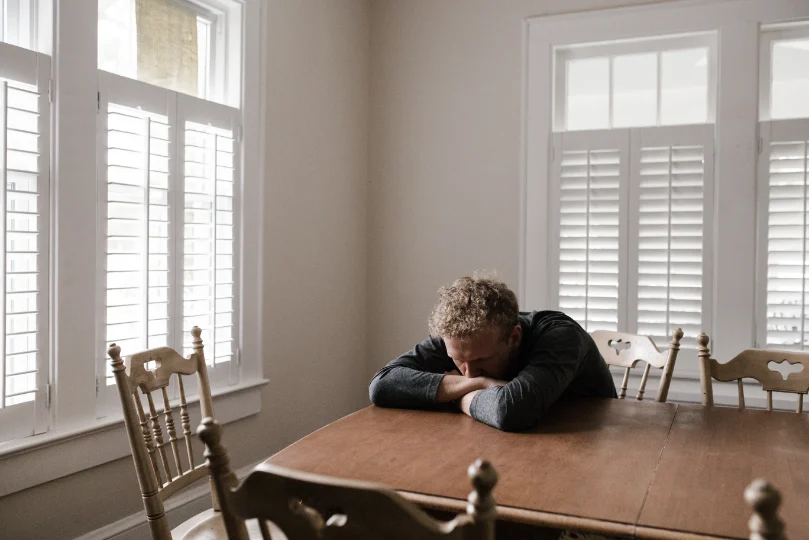“You just don’t understand me!” Most people experience this profound sense of isolation at some point. When we feel misunderstood by friends, family, co-workers, or even mental health professionals, it can negatively impact our self-esteem, emotional well-being, and connections with others.
Being misunderstood triggers emotions like sadness, anxiety, anger, and loneliness. It makes us question our self-worth and purpose in life. We might start doubting our thoughts, feelings, and perceptions of reality. Feeling deeply misunderstood can even lead to depression, social withdrawal, and other mental health issues.
Through relatable anecdotes and case studies, we normalize these emotions and provide a sense of community. You’ll discover healthy communication techniques, self-care tips, and pathways to gaining self-insight. With time, compassion, and the right tools, you can bridge gaps in understanding and foster meaningful human connections.
A Brief Summary of Nobody Understands Me
This guide covers the following aspects of feeling misunderstood:
- Common causes like unique personality traits, communication barriers, past trauma
- The psychological and emotional impact on self-esteem and mental health
- Relatable anecdotes from diverse perspectives and age groups
- Coping strategies like journaling, support groups, therapy and counseling
- Improving listening skills and expressing emotions effectively
- Embracing neurodiversity and building mutual understanding
By the end, you’ll have a deeper understanding of what makes us feel misunderstood and tools to foster greater connections.
Although the pain of feeling alone can be profound, you can find your inner compass to self-love and acceptance. With compassion for yourself and others, we can bridge communication gaps and create meaningful human connections.
Causes and contributing factors that can lead to feeling misunderstood
If you feel like nobody gets you, it involves lots of different things and is deeply connected to who you are. Let’s dig into those various aspects to understand in detail:
Unique Personality and Differences Causing Isolation
We all have quirks, passions, and ways of thinking that make us uniquely who we are. But if your personality diverges too much from social norms, it can be isolating. Many introverts struggle with feeling misunderstood. Highly intelligent or creative people also often feel disconnected when others don’t share their perspectives.
If you have an uncommon personality type like INFP or INTP on the Myers-Briggs scale, you may have values, thought patterns, and reactions that confuse even close friends and family.
Personality differences can lead to social anxiety, a tendency to withdraw, and generally feeling out-of-sync with society. Finding others who share your passions and worldviews provides connection.
Communication Challenges Preventing Genuine Connections
Even when personalities click, communication barriers get in the way of deep mutual understanding. We each have our own conversational styles, emotional languages, hidden assumptions, and filters we see the world through.
Autism spectrum disorders involve struggles reading subtle social cues like body language, tone, and facial expressions. This leads to miscommunications and a sense nobody understands your true intentions.
Other factors like cultural barriers, language gaps, differently wired brains, and poor listening skills also obstruct effective emotional communication.
We end up feeling more disconnected from loved ones despite repeated interactions. Learning to communicate core needs and be understood remains an art to continually practice.
Trust Issues and Trauma Causing Withdrawal
Past emotional wounds and traumatic experiences have lasting impacts on our ability to trust and open up to others as adults.
Childhood trauma like neglect, loss of a parent, abuse, bullying, and dysfunctional family dynamics can plant seeds of isolation. Painful romantic betrayals, discrimination, surviving disasters, or being victimized by violence erodes our ability to connect interpersonally without fear.
Mental Health Barriers to Forming Connections
Struggling with mental health challenges like depression, anxiety, OCD, PTSD, or personality disorders puts up barriers to feeling understood by others.
Symptoms like low self-worth, excessive rumination on flaws, anger outbursts, hypersensitivity, and a skewed worldview further distort how we perceive relationships. Social anxiety and paranoia feed off mental health issues and perpetuate withdrawal.
While counselors are trained to relate to emotional struggles compassionately, they may not fully grasp your experiences. Antidepressants help many people chemically, but the stigma around mental illness can prevent vulnerable sharing emotions with loved ones. Finding communities who cope with similar struggles helps combat isolation.
Wired Differently – Neurodiversity and Feeling Disconnected
Our brains are wired in unique ways based on genetic and environmental factors. When your neurotype – how your brain processes information – differs greatly from societal norms, relationships can suffer due to neurodivergence.
Common neurodiverse profiles like autism spectrum disorder, ADHD, bipolar disorder, and dyslexia involve distinct communication styles, sensory needs, and social behaviors.
Mainstream social etiquette and conventions often marginalize neurodivergent individuals. Their emotions, thoughts, and quirks remain cryptic even to close loved ones.
Joining neurodiverse communities to share strategies and find belonging is crucial. Optimizing daily routines to manage symptoms and communicating individual needs compassionately to others helps foster understanding.
Childhood Dynamics and Upbringing
Growing up in an emotionally dismissive, critical, or negligent family environment can inhibit a child’s ability to form secure, trusting relationships later in life. When parents or other caregivers consistently invalidate emotions and fail to respond empathetically during formative years, it damages one’s sense of self-worth and belonging.
Without positive attachment figures, children internalize a belief that they are unlovable and others cannot understand their inner world. Frequent criticism or shaming from family members also breeds an inner judge as adults. This prevents emotional openness, causing withdrawal to avoid scrutinizing judgments expected of all relationships.
Additionally, frequently moving disrupts friendships and continuity before bonds can properly form. The loneliness of always being “the new kid” in school and neighborhood circles inhibits one’s ability to ever fully let their guard down and connect genuinely with peers.
Life Circumstances
The various changing circumstances and challenges that compose our lives can also strain our closest relationships. Major life changes and transitions such as divorce, the death of a loved one, switching careers, or becoming a caregiver for aging parents profoundly impact our emotions, priorities, and availability.
Friends and family who have not gone through similar experiences often struggle to relate and provide true understanding. Physical isolation from moving to a new town or remote location away from existing support networks leads to a lack of social connections and increased loneliness.
Health conditions, disabilities, or mobility limitations that prevent participating in once-enjoyed activities with peers also perpetuate disconnection. Needing unique accommodations others do not understand further isolates and stigmatizes those managing illness or disability.
Personality and Temperament
One’s innate personality traits and temperament can also leave them feeling chronically misunderstood. Individuals with a predominantly serious, somber, and melancholy disposition tend to clash with society’s emphasis on constant positivity and upbeat moods in social situations. Their pensive inwardness and tendency toward rumination distance them from lighter small-talk interactions.
Highly sensitive persons (HSPs) frequently feel misunderstood as sensory stimuli, emotionally charged exchanges, and social gatherings quickly become overwhelming. Their need for more downtime and careful management of energies perplexes the network, which cannot comprehend the depth at which life impacts them.
Finally, those with very intellectual, philosophical bents feel most fulfilled diving deep into theoretical concepts, political issues, or abstraction. But they find few who share their passion for meaningful discourse, leaving them lost in superficial small talk and feeling woefully unseen.
Understand the Causes of Feeling Misunderstood with Table
| Cause | How It Leads to Isolation |
| Personality Differences | Having an uncommon personality type like INTJ or INFP makes it hard to find those who share your passions, quirks, and outlook. |
| Communication Barriers | Struggles reading subtle social cues, poor listening skills, conflicts over tone and emotional languages hamper connections. |
| Trauma and Adverse Experiences | Painful emotional wounds and betrayal erode trust, causing withdrawal and difficulty vulnerably connecting as an adult. |
| Mental Health Conditions | Symptoms like social anxiety, low self-worth, and emotional numbness strain relationships and prevent intimacy. |
| Neurodivergence | Wiring variations like autism, ADHD and bipolar disorder involve atypical social, communication and sensory needs that others misunderstand. |
| Childhood Dynamics and Upbringing | Invalidation and lack of secure attachments in childhood lead to isolation and inability to connect meaningfully as an adult. |
| Life Circumstances | Major life changes like grief, caregiving, or physical isolation strain relationships with friends who cannot always relate. |
| Personality and Temperament | Serious dispositions and highly sensitive traits cause disconnect from those not attuned to somberness or intensity. |
Psychological and Emotional Impact of Feeling Misunderstood
Ever felt like no one really gets what’s going on with you? That’s a tough spot to be in. It can really mess with how you’re feeling. Let’s look closer and analyze how feeling misunderstood can affect our minds and emotions. Let’s see:
Eroding Self-Confidence and Self-Worth
Being repeatedly misunderstood by those around you can steadily erode your self-confidence and sense of self-worth. You start questioning if you are the problem and internalizing a belief that you are somehow defective or unworthy of being known deeply.
Without social validation and reflected appraisal from others understanding your quirks, emotions, and experiences, you have no anchor for self-esteem.
Over time, you start doubting your own competence, talents, and any positive sense of self. Any rejection or abandonment feels like confirmation you are unlovable because of your flawed self.
Increasing Isolation and Disconnection from the World
As your self-esteem plummets, the natural reaction is to withdraw from social situations that trigger insecurity and reinforce distorted beliefs about yourself. You increasingly isolate yourself to avoid the pain and embarrassment of being misunderstood yet again.
Hiding away from the world provides temporary relief but only serves to deepen the sense of loneliness and disconnection from society long-term. You miss opportunities for growth through human connections. With increasingly limited social interactions, you have a warped window into norms, diluting perspective-taking abilities.
Seeking Validation and Approval from Others
In the quest to fill the void left by isolation, you might desperately seek approval and validation from others to stabilize your fractured self-worth. This often leads to forming one-sided, inauthentic relationships. You become so focused on pleasing others and telling them what they want to hear that your own needs get suppressed.
This excessive people-pleasing prevents the depth of mutual understanding possible through vulnerably expressing your authentic self. You are so afraid of rejection if you reveal your true emotions that you believe superficial praise equals being understood.
Questioning Self-Identity and Life’s Purpose
As social feedback gets cut off, you are left grappling with existential questions of self-identity and purpose. If no one ever understands who you truly are deep down, do you even know your real self? In the absence of external reflection appraising your worth, you wonder if your existence matters at all.
This lack of social reinforcement about the meaning of your experiences leaves you ruminating on what your goals, values, and place in the world should be. Without anchoring human connections, life feels aimless and disjointed.
Increased Self-Criticism and Self-Doubt
The longer you go without feeling understood by others, the more your inner critic takes over with excessive self-doubting thoughts. You start pre-emptively criticizing your own reactions and preferences as weird or wrong, believing that others would invalidate them if you dared open up.
This self-stigma and self-shaming causes overthinking and second-guessing your perceptions. Gaslighting yourself becomes preferable to speaking openly, only to be misunderstood yet again. You replay past scenarios, ruminating over how you should have reacted or communicated differently to be properly understood.
Relatable Experiences and Perspectives on Feeling Lonely and Misunderstood
It can be challenging when you are in a situation where no one seems to get where you’re coming from. Let’s explore and learn how others cope with these feelings of loneliness and being misunderstood.
Anecdotes From Different Walks of Life
Feeling chronically lonely and misunderstood is a universal human experience that unites us across backgrounds. Here are some anecdotes from different demographics grappling with isolation:
Simon, a 45-year-old single father, struggles to connect with his pre-teen daughters as they become more immersed in social media and pop culture he can’t relate to. He feels at a total loss trying to communicate with them and longs for deeper conversations.
Riya, a college freshman with Asperger’s syndrome, often misinterprets sarcasm and satire from peers as hostility due to challenges in reading tone and facial cues. She withdraws from social activities to avoid further uncomfortable interactions.
Ethan, a 60-year-old divorcee, finds himself feeling invisible at parties and gatherings dominated by couples. His emotional needs get overlooked, and he feels unable to express his loneliness.
Emily, a 16-year-old high schooler, masks her depression from friends and family by being the cheerful “therapist” who helps solve everyone’s problems. She yearns for someone to truly see past the facade and understand her internal turmoil.
Personal Stories from Diverse Ages
At any age, it’s possible to feel disconnected from peers who cannot relate to your struggles. Consider these personal stories:
Ryan, an 8-year-old with ADHD, gets scolded for not paying attention in class and acting impulsively. He feels constantly misunderstood by teachers and wishes someone knew how hard he was trying.
Latika, a 13-year-old budding artist, has ideas and passions her parents dismiss as fanciful rather than practical for future success. She wonders whether anyone will ever understand her creative outlook.
Caleb, a 35-year-old veteran, finds it impossible to articulate his harrowing war experiences with civilian friends and family. He hides his trauma and wishes more people could empathize.
Greta, a 72-year-old widow, feels she has become invisible with age. Her children are always too busy with work and distant grandchildren to truly listen. She keeps repeating stories, hoping someone will finally hear her.

Expert Insights from Mental Health Pros
Some quotes from psychologists and therapists explaining the desire to be understood:
“Humans are social creatures. When someone feels chronically lonely, they perceive threats everywhere because friendships provide safety. They withdraw further in self-protection, which only worsens isolation.”
“People who experience frequent misunderstandings may have underlying factors like neurodivergence, mental illness, or attachment issues rooted in childhood. But support and skill-building can improve connections.”
“A hallmark of depression is feeling disconnected from people who used to matter. As energy depletes, it becomes exhausting trying to explain your despair. Counseling provides a space to feel heard.”
“Trauma victims often feel nobody can comprehend their emotional wounds and pain. By gently relating through metaphors, therapists help build bridges of understanding to anchor them.”
Case Studies from Therapy Settings
Therapists regularly help clients who feel chronically alienated and misunderstood. Some fictional case studies:
Harrison is a tech engineer struggling with feeling different and deficient his whole life. Through counseling, he discovers he is on the autism spectrum.
His therapist helps him research ways neurodivergent brains work and communicate differently than the “normal” standard. Harrison starts embracing his unique problem-solving abilities and forging friendships with the neurodiverse community.
Sandra suffers from severe body dysmorphia and eating disorder tendencies. She desperately wants friends and family to understand her mental distortions about appearance that torment her daily.
With her therapist’s help, she opens up to loved ones using tangible metaphors like funhouse mirrors to explain her skewed self-perception. Their empathy finally helps Sandra feel cared for.
Henry grew up in a dismissive household where emotions were rejected as weak. In counseling, he learns to identify feelings and recognize they are normal. Practicing nonviolent communication techniques helps him healthily express needs, seek compromise with loved ones, and improve intimate connections.
Improving Understanding Through Self-Care, Communication and Support
Sometimes, helping others understand you better can start with how you take care of yourself and talk to them. This section will discuss how self-care, communication, and support play a part in making sure you feel understood.
Journaling, Art, and Introspection for Self-Understanding
Turning inward through journaling, creative pursuits, and deep introspection helps you better understand your own emotions, needs, and perspectives when feeling lonely.
Keeping a daily journal supports self-reflection on relationship challenges and sources of isolation. Tracking moods, anxieties, and communication issues makes patterns clearer.
Exploring your inner world through art, music, and poetry allows expression without judgments or need for validation. Letting feelings flow freely into a canvas or song empowers you to embrace quirks others may not understand. Introspective meditation and nature walks clear mental chatter so you can tune into your authentic self.
Developing Communication Skills and Emotional Intelligence
Improving how you communicate and relate intrapersonally builds bridges of mutual understanding. Learn to clearly articulate emotions and boundaries using “I feel__” statements and nonviolent communication. Actively listen without judgment and reflect back on what you hear others saying and feeling to show genuine empathy.
Expanding emotional intelligence builds awareness of how you and others experience emotions physically through body language, facial cues, and tone of voice. Mindfulness and emotional intelligence training help accurately express feelings and needs so you feel heard and understood.
Alternative Therapies Using Art, Music and Nature
Complementary therapies provide creative avenues of expression and connections that help combat isolation:
- Music therapy uses songwriting and instrument lessons for cathartic emotional release.
- Art therapy allows non-verbal expression of inner landscapes through painting and sculpting.
- Pet therapy alleviates loneliness through caring animal bonds.
- Nature therapy boosts mood through outdoor activities, gardening, and ecotherapy.
- Dance/movement therapy helps unblock emotions stored in the body and mind.
- Equine therapy builds trust and empathy through horse bonds.
- Drama/improv therapy improves social skills in a playful atmosphere.
Online and In-Person Support Groups
Joining support groups builds community with people facing similar mental health battles and life challenges. Knowing you are not alone in feeling chronically misunderstood provides comfort. Peer support groups exist for issues ranging from:
- Depression
- PTSD
- Neurodivergence
- Infertility
- Chronic illnesses
- LGBTQ+ identities
- Eating disorders
- Anxiety disorders
- Addiction recovery
Both local in-person and online support groups offer judgment-free spaces to share struggles openly. Support communities can be found through mental health organizations, forums, social media, and the Meetup app.
Seeking Counseling and Mental Health Services
Professional counseling provides dedicated time to feel heard and understood without burdening loved ones. Therapists help you safely explore painful emotions, gain self-insight, and implement healthy coping strategies. Different therapeutic approaches target specific mental health conditions, communication issues, and sources of emotional isolation.
Cognitive behavioral therapy helps transform negative thought patterns, worsening isolation. Dialectical behavior therapy teaches interpersonal effectiveness and distress tolerance skills. Humanistic therapy focuses on innate human needs for belonging and self-actualization. Joining a group counseling workshop builds connections through shared experiences.
Getting treatment for diagnosed mental illnesses like depression and PTSD removes barriers to forming relationships. Medication combined with counseling treats symptoms sabotaging social-emotional functioning. With professional support, you can unlearn toxic beliefs about yourself that perpetuate misunderstandings.
Summary of Healthy Coping Strategies for Loneliness
| Strategy | How It Helps |
| Journaling and Art Therapy | Expressing emotions creatively provides an outlet and builds self-awareness. |
| Support Groups | Finding community with those facing similar struggles combats isolation. |
| Counseling | Dedicated space and guidance to process feelings, gain coping tools and feel heard. |
| Mindfulness Practices | Meditation, ecotherapy and yoga quiet mental chatter, reduce anxiety and foster peace. |
| Emotional Intelligence | Learning to articulate your own emotions while empathizing with others’ perspectives. |

Raising Mutual Understanding through Healthy Communication
Improved communication is often the bridge that leads to understanding. It’s not just what we say but how we listen to that strengthens the bond of connection, improving an environment where perspectives can meet and understanding can truly blossom. Let’s explore how this communication mechanism leads us to a place of mutual empathy and comprehension.
Establishing Boundaries and Managing Expectations
A key step is setting healthy boundaries and managing both your own and others’ expectations. Be clear about your social battery and inform loved ones when you need to recharge alone or have reached emotional capacity. Say no to plans that drain you without guilt.
Guard against over-relying on people to meet your unmet needs for validation. Seek professional support for attachment issues rooted in childhood that fuel this. Have realistic expectations of friends and partners – they cannot be expected to constantly provide unconditional understanding.
Practicing Nonviolent Communication
Implement nonviolent communication techniques to foster mutual understanding. Express feelings and unmet core needs using “I” statements rather than blaming “you” messages. For example, “I feel lonely and crave deeper connection,” not “You don’t care about me enough.”
Focus on making empathetic requests to have needs met rather than demanding. For example, “Would you be willing to put away your phone when we talk so I can feel heard?” as opposed to “You need to pay attention to me.” Approach differences compassionately by first finding common ground.
Active Listening and Expressing Emotions
Active listening demonstrates genuine interest in understanding someone’s experiences. Maintain eye contact, reflect back key feelings, and ask thoughtful questions without interrupting. Suspended judgment as you listen helps others feel cared for.
Work on identifying and articulating your own emotions skillfully. For example, precisely express feeling inadequate or unloved rather than just sad. Use metaphors, images, and stories to convey complex emotions that others can relate to through their own experiences.
Embracing Neurodiversity in Relationships
When neurodivergence like autism or ADHD contributes to misunderstandings, embrace neurodiversity as natural and learn strategies tailored to how your brain works. Educate loved ones on how your neurotype processes emotions, language, social cues, and sensory stimuli differently.
Negotiate accommodations like written cues, low sensory spaces, headphones, and breaks that support communication. Join neurodivergent communities to find belonging, advocacy, and problem-solving insights specific to your neurotype’s social and cognitive patterns.
Lead with Empathy, Compassion and Patience
Cultivate the life skills of empathy, compassion, and patience to improve how you relate to yourself and others. Empathy builds bonds as you imagine yourself in someone else’s situation. Compassion means treating yourself and others with kindness, not criticism, when you inevitably make mistakes. Patience gives time for mutual understanding to develop at its own pace.
Make space for the inherent messiness of human relationships. They require continual effort, forgiveness, second chances, and starting over. Use conflicts and misunderstandings as opportunities for growth and learning rather than reasons to disconnect. Progress over perfection is key to sustaining lifelong human connections.
Summary to Improve Understanding in Relationships
| Technique | Benefits |
| Active Listening | Fully concentrating on what someone is saying without interrupting demonstrates care. |
| Nonviolent Communication | Expressing needs constructively through “I” statements avoids provoking defensiveness. |
| Managing Expectations | Setting boundaries around emotional capacity and social battery prevents relying too heavily on others for understanding. |
| Leading with Empathy | Imagining yourself in someone else’s situation helps relate to their experiences. |
| Embracing Neurodiversity | Customizing communication and social strategies to fit diverse neurotypes improves mutual understanding. |
Reaching Out for Help and Support When Battling Depression
Seeking understanding and support is a critical first step in coping with loneliness and isolation. While depression often convinces us we are alone and hopeless, there are compassionate people ready to listen, comfort, and guide us. Whether reaching out to a loved one, therapist, or support group, making a genuine human connection helps us believe we can get through this.
Approaching Loved Ones About Their Depression
If someone you care about seems withdrawn, irritable, tearful, or emotionally disconnected lately, they may be battling depression. While your natural instinct is to try “fixing” their unhappiness, simply listening without judgment is more helpful.
Choose a private moment to gently tell them you’ve noticed changes in their mood or behaviour and you’re available to talk. Avoid scolding them to “just snap out of it” or criticising coping mechanisms like oversleeping.
Ask how you can best support them right now—whether by giving them space, doing shared activities, or attending counseling together. Remind them this dark phase will pass, and you are there no matter how long it takes. Offer specific help like meals, rides, and errands to alleviate their daily burdens.
If they reveal suicidal thoughts, take immediate action, like contacting their therapist or calling emergency services. With compassion and patience, you can gain the trust to eventually understand their emotional landscape.
Seeking Help from Mental Health Professionals
Therapists, psychologists, psychiatrists, and other mental health specialists provide critical support on the journey to recovery from depression. They have expertise in creating a judgment-free space to process painful emotions and untangle destructive thought patterns, worsening isolation.
Through gentle questioning and evidence-based techniques, they help you unearth root causes and gain self-awareness. Over time, you can rebuild a sense of purpose and self-worth within the safety of the therapeutic relationship.
If cost is a barrier, many therapists offer reduced sliding scale fees. University clinics often provide lower-cost counseling to graduate students. Support groups also offer affordable mental health assistance.
Don’t be afraid to “shop around” for the best fit—you want a practitioner who listens intently and “gets” you. With professional guidance, you can finally feel understood, even if those closest to you cannot fully relate to the despair depression brings.

The Power of Support Groups and Communities
Joining a support group or community of people coping with depression provides a social connection missing from your daily life. Whether attending virtual or in-person sessions, you suddenly have a circle of people who falteringly understand your struggles. Being immersed among others on their own mental health journeys normalizes emotions you’ve hidden away for so long.
Support groups organized by organizations like the Depression and Bipolar Support Alliance or local mental health clinics are led by peers or professionals. You’ll gain coping strategies and inspiration from individuals further along in recovery.
Online depression communities also allow 24/7 access to forums and chat rooms when comfort is needed in the middle of the night. You deserve to feel heard—reach out and find your compassionate tribe ready to listen.
Overcoming Stigma Around Feeling Lonely and Misunderstood
Examining Societal Norms and Expectations Perpetuating Stigma
Societal norms and expectations often perpetuate stigma against those experiencing chronic loneliness and isolation. Images of happy couples, close-knit friend groups, and extroverted social butterflies bombard us daily. “FOMO” (fear of missing out) dominates pop culture. We feel pressure to curate perfect social media lives.
These unrealistic ideals breed shame in those unable to meet social expectations. We inaccurately assume everyone else leads active, connected lives. Admitting loneliness seems like a personal failure.
To combat stigma, we must challenge perceptions that belittle quieter, introverted, or socially anxious people as less worthy than social extroverts. Valuing diverse personalities and social needs matters.
Busting Myths and Assumptions About the Lonely
Let’s bust some common myths assuming loneliness reflects personal flaws or inadequacies:
· Lonely people are just shy or anti-social – In reality, isolation often results from mental health struggles, trauma, neurodivergence, or mood disorders.
· Loners don’t need much social connection – In truth, most human beings profoundly crave belonging, even introverts.
· Isolating reflects weakness or lack of self-esteem – On the contrary, it takes courage and strength to admit loneliness and seek help.
· Lonely folks just need to get out more – While socializing helps, prescription superficial fixes overlook core reasons for isolation.
· Loneliness is a rare condition – Surprisingly, huge swaths of society admit feeling chronically lonely and misunderstood.
Judging or blaming people for circumstances beyond their control aggravates pain. Challenging assumptions creates empathy.
Uplifting Stories of People Embracing Loneliness
More public figures openly discussing loneliness helps de-stigmatize it. Pop singer Lady Gaga confessed to intense isolation and depression early in her career. Comedian Kevin Hart shares how fame exacerbated disconnection from others. Former First Lady Michelle Obama revealed feeling alone as a black student at Princeton.
Ordinary people also advocate through initiatives like Britain’s Campaign to End Loneliness. Sharing stories fosters compassion over judgment. As actor Tom Hanks stated, “Loneliness is something that eats people from the inside out. It’s one of the most terrible things that can happen to a human being, to have no one.”
Providing Educational Resources to Combat Prejudice
We must expand resources to spread awareness and reduce Prejudice against the lonely. Campaigns like Stop loneliness use social media, workshops, and PSAs to reframe isolation as manageable, not shameful. Nonprofits like The UnLonely Project train student ambassadors and partner with senior centers to develop connection programs.
Mental health organizations offer online education combating myths about various conditions causing isolation. Support groups create community and hope.
Therapists provide compassionate treatment without stigma. Improving school mental health services better assists withdrawn youth. Through knowledge, we gain tools to nurture inclusion, belonging, and understanding.
The more we draw loneliness into everyday discourse, the more universal human experience is normalized and de-stigmatized. Turning compassion into action uplifts us all.
Summing Up – Nobody Understands Me
Feeling chronically lonely and misunderstood has profound psychological impacts. With self-insight, communication skills, professional support, and compassion for neurodiversity, we can foster mutual understanding.
Shared vulnerability, active listening, embracing neurodiversity, managing expectations, and nonviolent communication cultivate relationships where you feel accepted as your authentic self. At the core, make peace with who you are. Self-love quells the need for validation from others. You are worthy of belonging and connection just as you are – misunderstood sides included.
Feeling deeply misunderstood can happen even when surrounded by loving people. Personality differences, poor communication, and difficulties expressing emotions can create disconnects. Mental health challenges and past trauma may also obstruct the forming of intimate bonds.
Don’t give up. Use metaphors, art, music, journal entries, or other creative means to express your inner world. Ask how you can explain things differently to help them empathize. Suggest counseling to facilitate deeper connection.
Not necessarily. It may take time to build enough trust and rapport to be vulnerable. Or you may need a different therapeutic approach or counselor with experience relating to your specific issues. Advocate for yourself, or seek a second opinion.
Self-acceptance is key, along with compassion for the limitations we all have in fully understanding each other’s lived experiences. While embracing your quirks, also be open to feedback on how to convey your inner world.



